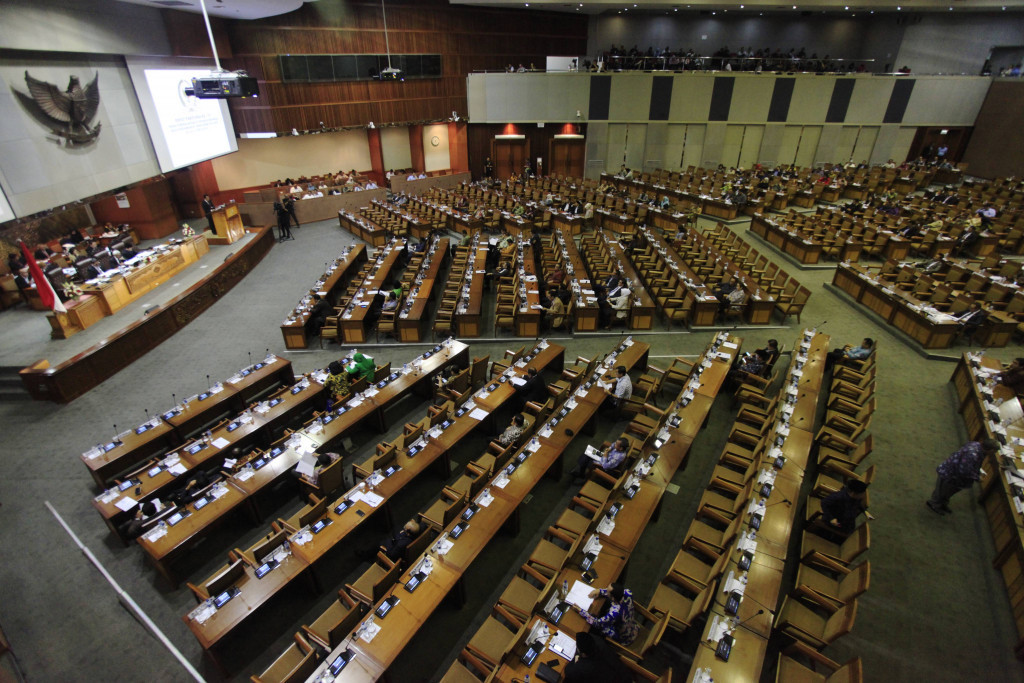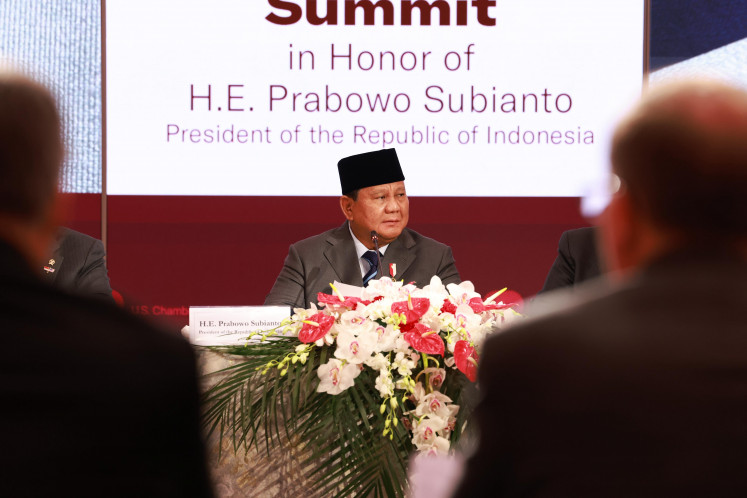Popular Reads
Top Results
Can't find what you're looking for?
View all search resultsPopular Reads
Top Results
Can't find what you're looking for?
View all search resultsSame old House?
It is as if nothing has happened since the 2014 legislative election.Despite a series of graft cases implicating various political parties and a meager performance in lawmaking, the new composition of the House of Representatives, according to quick-count results, has not changed much.
Change text size
Gift Premium Articles
to Anyone
It is as if nothing has happened since the 2014 legislative election.
Despite a series of graft cases implicating various political parties and a meager performance in lawmaking, the new composition of the House of Representatives, according to quick-count results, has not changed much.
The pollsters were wrong. The coattail effect, which was expected to bring more votes to the Indonesian Democratic Party of Struggle (PDI-P) and the Gerindra Party for having fielded their members as presidential candidates, did not really happen.
The PDI-P is predicted to get around 19 to 20 percent of the vote, which is only slightly better than its showing in 2014 with 18.95 percent. The Golkar Party, even after having two of its top executives charged with graft, still gained around 12 percent of the vote. Gerindra may have performed better in the April 17 election but it only increased its vote acquisition by 1 percent.
Islam-based parties, except for the United Development Party (PPP) and National Mandate Party (PAN), did slightly better than expected, and so did the mid-size nationalist parties such as the Democratic Party and the NasDem Party.
We hope the new faces in the House can improve its performance, even though it is likely that the old faces will continue to hold leadership posts within each faction, thus undermining reform.
The incumbent legislators did an awful job in lawmaking.
A study conducted by the Indonesia Corruption Watch (ICW) and the Indonesia Budget Center said that as of April this year, the current batch of lawmakers had only passed 26 of the 189 bills in the National Legislation Program. With Rp 1.6 trillion (US$112.7 million) allocated for legislation, the lawmakers only produced around five laws per year, the groups say.
It does not help that, according to the ICW, 59 lawmakers have been implicated in corruption. It is therefore a requisite that the public keeps an eye on the House’s budgeting role. The multimillion dollar e-ID graft case has shown us the level of corruption that could take place during budgeting.
However, the greatest challenge for the new House members is improving its oversight role. There are indications that members of the coalition supporting the losing candidate, Prabowo Subianto, are planning to defect and throw their support behind President Joko “Jokowi” Widodo.
The five parties backing Jokowi — the PDI-P, Golkar, the National Awakening Party (PKB), NasDem and PPP — are expected to control more than half of House seats. If PAN and the Dems decide to join the ruling coalition, Jokowi may gain an even stronger grip on the House.
We are aware that the President needs to have adequate support from the House to carry out his programs but there is no denying that we also need a smart and strong opposition to perform checks and balances on the government.










